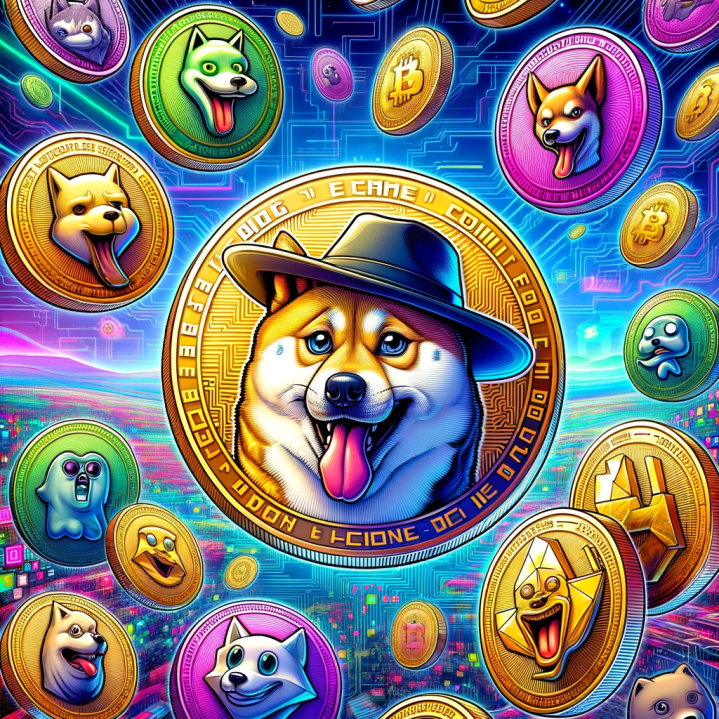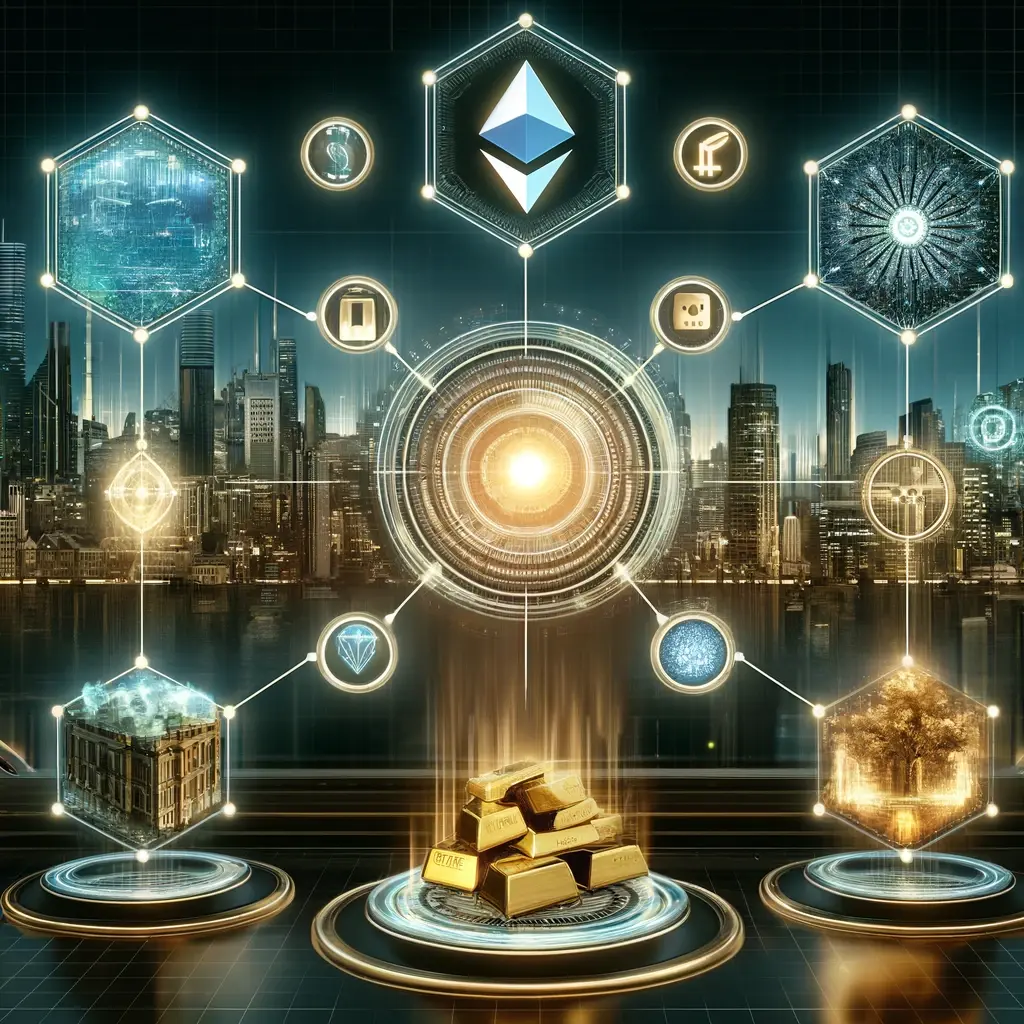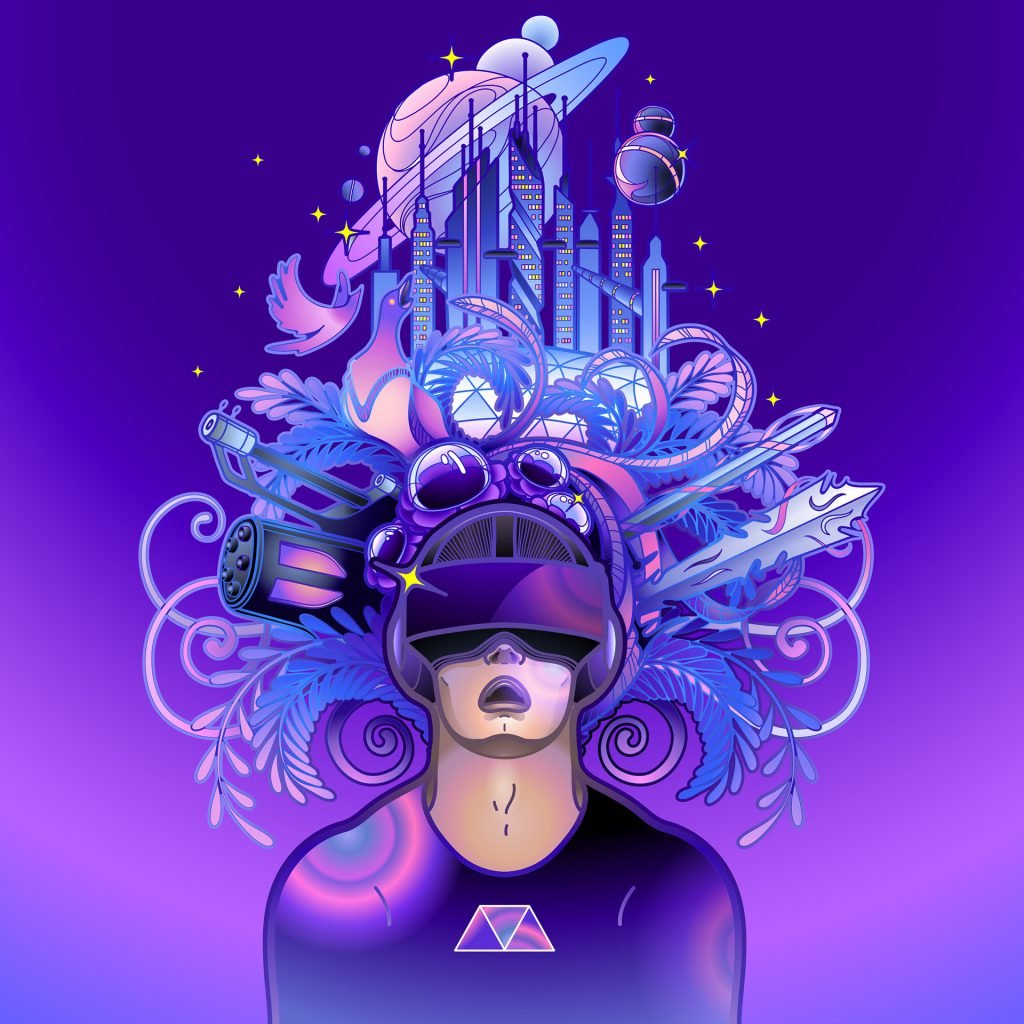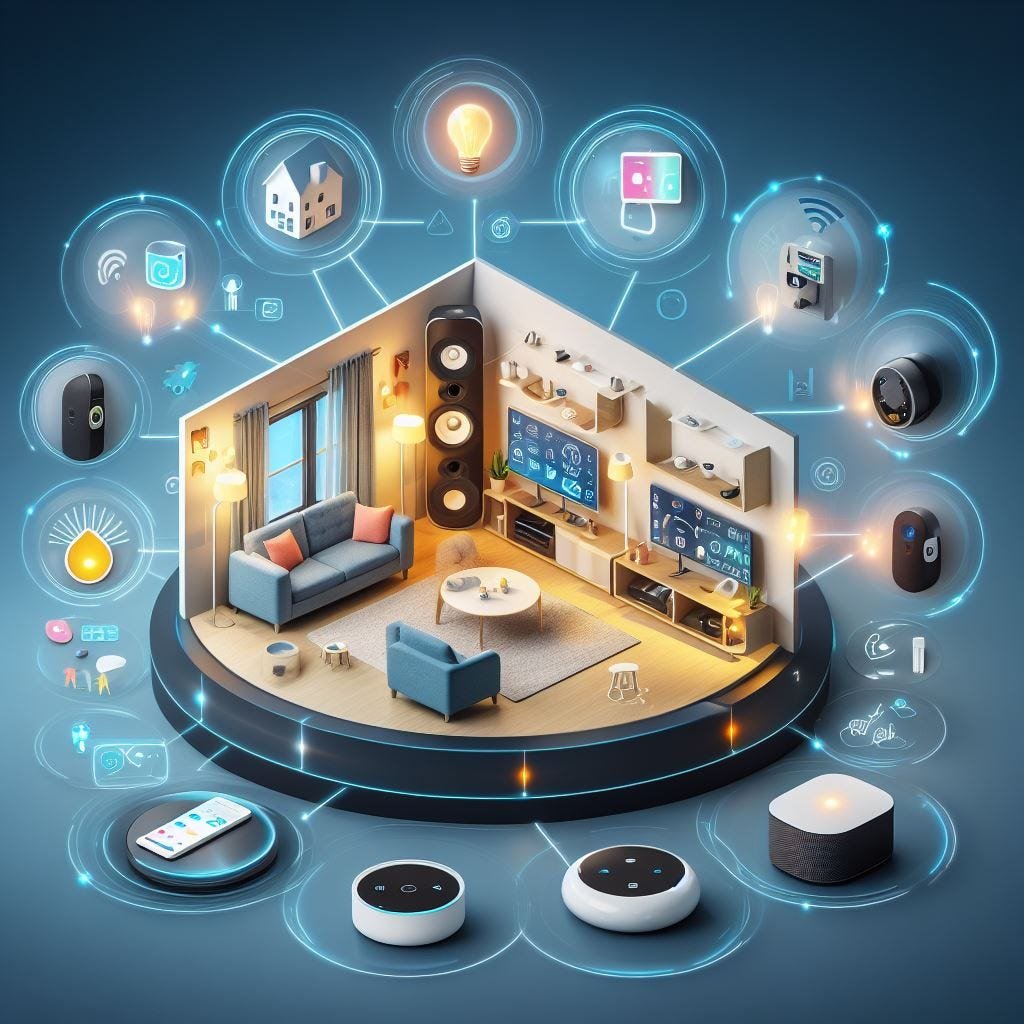Other Web3 Developments
As decentralization becomes more popular new developments and innovations arise
GameFi
GameFi, short for “Game Finance,” is a fusion of gaming and decentralized finance (DeFi) built on blockchain technology. This innovative application allows players to earn cryptocurrency rewards and assets by participating in games, introducing a “play-to-earn” model. Unlike traditional video games where in-game assets are often restricted to the game environment, GameFi enables players to truly own these assets as Non-Fungible Tokens (NFTs) or cryptocurrencies, which can be traded, sold, or used across different platforms.
Examples of GameFi platforms include Axie Infinity, where players breed and battle digital creatures, earning tokens that can be exchanged for real money, and Decentraland, a virtual world where users can buy, sell, and develop virtual land. The benefits of GameFi over centralized gaming platforms are significant: true ownership of in-game assets, the ability to earn real-world value through gameplay, and enhanced security and transparency through blockchain technology. These features democratize gaming by allowing players to participate in the gaming economy, creating a more engaging and financially rewarding experience.

GameFi

GameFi, short for “Game Finance,” is a fusion of gaming and decentralized finance (DeFi) built on blockchain technology. This innovative application allows players to earn cryptocurrency rewards and assets by participating in games, introducing a “play-to-earn” model. Unlike traditional video games where in-game assets are often restricted to the game environment, GameFi enables players to truly own these assets as Non-Fungible Tokens (NFTs) or cryptocurrencies, which can be traded, sold, or used across different platforms.
Examples of GameFi platforms include Axie Infinity, where players breed and battle digital creatures, earning tokens that can be exchanged for real money, and Decentraland, a virtual world where users can buy, sell, and develop virtual land. The benefits of GameFi over centralized gaming platforms are significant: true ownership of in-game assets, the ability to earn real-world value through gameplay, and enhanced security and transparency through blockchain technology. These features democratize gaming by allowing players to participate in the gaming economy, creating a more engaging and financially rewarding experience.
Meme Coins

Meme coins are a unique and playful category of cryptocurrency, often inspired by internet memes, jokes, or pop culture references. While they may start as humorous projects, some meme coins have gained substantial value and popularity, with Dogecoin being the most famous example. Originally created as a parody of Bitcoin, Dogecoin has grown into a widely recognized cryptocurrency, supported by a vibrant community and even used for charitable donations and tipping online.
Meme coins usually have large, passionate communities that drive their value through social media and online platforms. Though their utility might be limited compared to other cryptocurrencies, they offer a decentralized alternative to traditional assets by leveraging community-driven momentum and decentralized networks. The benefits over centralized equivalents lie in their grassroots nature; anyone can create a meme coin, and its success is determined by the community rather than a central authority. While meme coins are often volatile and speculative, they demonstrate the power of decentralized networks and community engagement in shaping financial ecosystems.
Meme Coins

Meme coins are a unique and playful category of cryptocurrency, often inspired by internet memes, jokes, or pop culture references. While they may start as humorous projects, some meme coins have gained substantial value and popularity, with Dogecoin being the most famous example. Originally created as a parody of Bitcoin, Dogecoin has grown into a widely recognized cryptocurrency, supported by a vibrant community and even used for charitable donations and tipping online.
Meme coins usually have large, passionate communities that drive their value through social media and online platforms. Though their utility might be limited compared to other cryptocurrencies, they offer a decentralized alternative to traditional assets by leveraging community-driven momentum and decentralized networks. The benefits over centralized equivalents lie in their grassroots nature; anyone can create a meme coin, and its success is determined by the community rather than a central authority. While meme coins are often volatile and speculative, they demonstrate the power of decentralized networks and community engagement in shaping financial ecosystems.
RWA's
Real World Assets (RWAs) in the context of Web3 refer to the tokenization of physical assets, such as real estate, commodities, or fine art, onto blockchain networks. By converting tangible assets into digital tokens, RWAs enable fractional ownership, increased liquidity, and global accessibility. This means that a real estate property, for example, can be divided into multiple tokens, allowing investors to purchase small fractions rather than entire properties. This ability to fractionalize ownership not only democratizes access to valuable assets but also opens up new avenues for financial inclusion, allowing a broader range of investors to participate in markets previously reserved for the wealthy.
The primary advantage of RWAs over traditional asset ownership is the enhanced liquidity and accessibility they offer. Unlike the traditional process, which involves significant capital and complex legal procedures, tokenized assets can be traded easily on decentralized exchanges, lowering the barriers to entry for investors. Moreover, the transparency provided by blockchain technology ensures that all transactions are verifiable and secure. This democratization of access to valuable assets marks a significant shift in how wealth can be distributed and managed, making investments more accessible to a broader audience and enhancing the efficiency of financial markets.

RWA's

Real World Assets (RWAs) in the context of Web3 refer to the tokenization of physical assets, such as real estate, commodities, or fine art, onto blockchain networks. By converting tangible assets into digital tokens, RWAs enable fractional ownership, increased liquidity, and global accessibility. This means that a real estate property, for example, can be divided into multiple tokens, allowing investors to purchase small fractions rather than entire properties. This ability to fractionalize ownership not only democratizes access to valuable assets but also opens up new avenues for financial inclusion, allowing a broader range of investors to participate in markets previously reserved for the wealthy.
The primary advantage of RWAs over traditional asset ownership is the enhanced liquidity and accessibility they offer. Unlike the traditional process, which involves significant capital and complex legal procedures, tokenized assets can be traded easily on decentralized exchanges, lowering the barriers to entry for investors. Moreover, the transparency provided by blockchain technology ensures that all transactions are verifiable and secure. This democratization of access to valuable assets marks a significant shift in how wealth can be distributed and managed, making investments more accessible to a broader audience and enhancing the efficiency of financial markets.
Metaverse

The Metaverse refers to a collective virtual shared space, created by the convergence of virtually enhanced physical reality and physically persistent virtual reality, accessed through the internet. In the context of Web3, the Metaverse is powered by blockchain technology, enabling decentralized ownership and control of digital assets, environments, and identities within these virtual worlds. Unlike traditional virtual spaces controlled by central entities, Web3 Metaverses allow users to have true ownership of their digital assets, ensuring that these assets can be traded, sold, or transferred freely without relying on any single authority.
Examples of Web3 Metaverse platforms include The Sandbox and Decentraland, where users can purchase virtual land, create experiences, and trade digital goods as NFTs. These virtual worlds offer a decentralized alternative to centralized gaming and social media platforms by providing users with true ownership and control over their digital presence and assets. The benefits of a decentralized Metaverse include enhanced security, privacy, and the ability to monetize digital assets without relying on a central authority. This shifts power away from traditional tech giants and places it in the hands of individual users and creators.
Metaverse

The Metaverse refers to a collective virtual shared space, created by the convergence of virtually enhanced physical reality and physically persistent virtual reality, accessed through the internet. In the context of Web3, the Metaverse is powered by blockchain technology, enabling decentralized ownership and control of digital assets, environments, and identities within these virtual worlds. Unlike traditional virtual spaces controlled by central entities, Web3 Metaverses allow users to have true ownership of their digital assets, ensuring that these assets can be traded, sold, or transferred freely without relying on any single authority.
Examples of Web3 Metaverse platforms include The Sandbox and Decentraland, where users can purchase virtual land, create experiences, and trade digital goods as NFTs. These virtual worlds offer a decentralized alternative to centralized gaming and social media platforms by providing users with true ownership and control over their digital presence and assets. The benefits of a decentralized Metaverse include enhanced security, privacy, and the ability to monetize digital assets without relying on a central authority. This shifts power away from traditional tech giants and places it in the hands of individual users and creators.
Internet of Things
The Internet of Things (IoT) refers to the network of physical devices embedded with sensors, software, and other technologies that connect and exchange data over the internet. In the Web3 space, IoT is enhanced by blockchain technology, enabling decentralized, secure, and transparent management of IoT networks. This integration ensures that data collected by IoT devices is tamper-proof, securely stored, and accessible only by authorized parties.
An example of a Web3 IoT project is IOTA, which aims to enable secure sales and trading of data streams generated by IoT devices. Another example is Helium, a decentralized wireless network that rewards users with cryptocurrency for providing coverage for IoT devices. The primary benefit of integrating blockchain with IoT is the enhanced security and decentralization it brings, reducing the risks of hacking, data breaches, and centralized control. This ensures that the vast amounts of data generated by IoT devices are handled in a more secure and efficient manner, fostering trust and adoption in IoT technologies.

Internet of Things

The Internet of Things (IoT) refers to the network of physical devices embedded with sensors, software, and other technologies that connect and exchange data over the internet. In the Web3 space, IoT is enhanced by blockchain technology, enabling decentralized, secure, and transparent management of IoT networks. This integration ensures that data collected by IoT devices is tamper-proof, securely stored, and accessible only by authorized parties.
An example of a Web3 IoT project is IOTA, which aims to enable secure sales and trading of data streams generated by IoT devices. Another example is Helium, a decentralized wireless network that rewards users with cryptocurrency for providing coverage for IoT devices. The primary benefit of integrating blockchain with IoT is the enhanced security and decentralization it brings, reducing the risks of hacking, data breaches, and centralized control. This ensures that the vast amounts of data generated by IoT devices are handled in a more secure and efficient manner, fostering trust and adoption in IoT technologies.
DeSci

Decentralized Science (DeSci) is an emerging Web3 application that aims to revolutionize the way scientific research is conducted, funded, and shared. By leveraging blockchain technology, DeSci enables the decentralization of the research process, allowing scientists to publish their work, secure funding, and collaborate without relying on traditional institutions or intermediaries. This opens up opportunities for a more transparent, open, and collaborative scientific ecosystem.
Platforms like AxonDAO and VitaDAO exemplify the DeSci movement by enabling decentralized funding and ownership of scientific research. Researchers can tokenize their projects, allowing investors and the community to directly fund and benefit from scientific advancements. The benefits of DeSci over traditional scientific research include greater transparency, reduced barriers to entry for funding, and increased collaboration across borders. By removing the gatekeepers of scientific knowledge, DeSci empowers researchers and accelerates the pace of innovation, making science more accessible and democratic.
DeSci

Decentralized Science (DeSci) is an emerging Web3 application that aims to revolutionize the way scientific research is conducted, funded, and shared. By leveraging blockchain technology, DeSci enables the decentralization of the research process, allowing scientists to publish their work, secure funding, and collaborate without relying on traditional institutions or intermediaries. This opens up opportunities for a more transparent, open, and collaborative scientific ecosystem.
Platforms like AxonDAO and VitaDAO exemplify the DeSci movement by enabling decentralized funding and ownership of scientific research. Researchers can tokenize their projects, allowing investors and the community to directly fund and benefit from scientific advancements. The benefits of DeSci over traditional scientific research include greater transparency, reduced barriers to entry for funding, and increased collaboration across borders. By removing the gatekeepers of scientific knowledge, DeSci empowers researchers and accelerates the pace of innovation, making science more accessible and democratic.
Support us in our mission
The best way to support our mission is to ‘Learn and Tell’ about decentralization. To help us improve our website you can buy the recommend books through affiliate links, watch our content on YouTube or donate Bitcoin on our Lightning wallet address. Learn more below!
Contact us!
Any recommendations about our website, or questions about decentralization or the content provided? Do not hesitate to contact us! You can drop us a message on the contact page or drop us an email at: info@r2decentralization.com